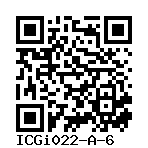K74-AsCas12a-N1-26
ICGi022-A-6
General
Donor Information
General Donor Information |
|
| Sex | female |
| Ethnicity | Caucasian |
Phenotype and Disease related information (Donor) |
|
| Diseases | No disease was diagnosed.
|
Karyotyping (Donor) |
|
| Has the donor karyotype been analysed? |
No
|
Other Genotyping (Donor) |
|
| Is there genome-wide genotyping or functional data available? |
Yes
Exome sequencing
https://www.ncbi.nlm.nih.gov/sra/?term=SRR11413027 No disease associated mutation found |
Donor Relations |
|
| Other cell lines of this donor | |
External Databases (Donor) |
|
| BioSamples | SAMN14446266 |
Ethics
Also have a look at the ethics information for the parental line
ICGi022-A
.
| Is there an MTA available for the cell line? | No |
| For generation of the cell line, who was the supplier of any recombined DNA vectors or commercial kits used? |
hIPSC Derivation
General |
|
|
The source cell information can be found in the parental cell line
ICGi022-A.
|
|
Reprogramming method |
|
| Vector type | Non-integrating |
| Vector | Episomal |
| Is reprogramming vector detectable? |
No |
| Methods used |
PCR
|
Vector free reprogramming |
|
Other |
|
| Derived under xeno-free conditions |
No |
| Derived under GMP? |
No |
| Available as clinical grade? |
No |
Culture Conditions
| Surface coating | Gelatin | |||||||||||||||
| Feeder cells |
Mouse embryonic fibroblasts Cellfinder Ont Id: http://www.ebi.ac.uk/efo/EFO_0004040 |
|||||||||||||||
| Passage method |
Enzymatically
TrypLE
|
|||||||||||||||
| O2 Concentration | 20 % | |||||||||||||||
| CO2 Concentration | 5 % | |||||||||||||||
| Medium |
Other medium:
Base medium: Knock-out DMEM
Main protein source: Knock-out serum replacement Serum concentration: 15 % Supplements
|
|||||||||||||||
| Has Rock inhibitor (Y27632) been used at passage previously with this cell line? | Yes |
|||||||||||||||
| Has Rock inhibitor (Y27632) been used at cryo previously with this cell line? | No |
|||||||||||||||
| Has Rock inhibitor (Y27632) been used at thaw previously with this cell line? | Yes |
Characterisation
Analysis of Undifferentiated Cells
| Marker | Expressed | Immunostaining | RT-PCR | Flow Cytometry | Enzymatic Assay | Expression Profiles |
| NANOG |
Yes |
|||||
| POU5F1 (OCT-4) |
Yes |
Morphology pictures
Differentiation Potency
Microbiology / Virus Screening |
|
| Mycoplasma | Negative |
Genotyping
Karyotyping (Cell Line) |
|
| Has the cell line karyotype been analysed? |
Yes
|
Other Genotyping (Cell Line) |
|
Genetic Modification
| Genetic modifications not related to a disease |
|


Login to share your feedback, experiences or results with the research community.